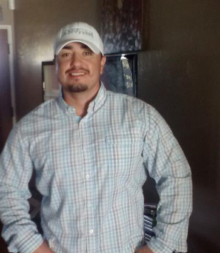Blog
The Power is HOW you say it in the Independent Contracting World
By Todd Liles • The Power is HOW you say it in the Independent Contracting World
Developing, growing, and managing communication skills is important for team members that work inside of an independent contracting company in the industries of HVAC, plumbing, and electrical. Employees must work to communicate effectively both verbally and nonverbally on a daily basis with coworkers and clients. But why is the development of nonverbal communication skills so important?
Dr. Nick Morgan, communication theorist and coach, ventures to answer this question in the video below as he delves into the importance of nonverbal communication, body language, and tone. He explains that communication, both verbal and nonverbal, must intermix to create authentic communication. He posses this interesting question in which he works to answer in his presentation: “What is that unconscious process that you can master, that will give you that authentic communication with the people you work with, your clients, and the world at large?” Here are points from Dr. Morgan’s presentation that highlight the important aspects of beginning the process of mastering authentic communication:
1. Understanding the Mystery of Communication-
Before a technician, CSR, or manager can understand, grow, and development good nonverbal communication skills they must first have some understanding of the mystery behind communication.
-Common belief- Dr. Morgan explains that most people see their brains as a “director.” We tend to think that we first make a conscious decision in our minds, which then causes us to act. While it’s generally supposed that our conscious thoughts lead us to an action, there is new brain research that is leading experts to see the opposite to be true.
-New research- New research is beginning show that a portion of our brains called the Amygdala is responsible for recollecting and processing emotional reactions. So when an emotion or feeling is processed in the Amygdala it calls on and directs the body to unconsciously move in response. Conscious thoughts emerge only after this unconscious process has taken place. Dr. Morgan explains that the result is that the conscious brain spends a great deal of time trying to decipher the unconscious action performed by the body rather than the conscious brain actually directing the action.
-Results- This new research tells us that a larger portion of our brain controls unconscious thought while a somewhat smaller area controls conscious thought. So as a result, the unconscious portion of our brain, in many cases, makes prominent moves that must later be reasoned out by our conscious brain. This goes on to further explain that it’s not always what we say but rather how we say it that is important within a verbal presentation inside of a sales call or service call. Our unconscious brain is first processing how we feel about a situation from visual ques such as nonverbal communication, body language, and tone before our conscious brain ever has an opportunity to process the reasoning within a verbal presentation. There is always two “conversations” happening when communicating; one in which the unconscious brain is processing the emotions connected to nonverbal communication and the conscious brain that works to process the reasoning and verbal portion of communication.
2. Communication is composed of “Two Conversations”-
Because our minds can be broken down into conscious and unconscious areas this means that we are constantly performing a balancing act to keep these two portions in-check when we are communicating. When we are talking with coworkers or presenting to a client we are always juggling how we feel (which can be easily revealed through our body language) and the message that we are trying to verbally portray. Yet interestingly enough, people will always believe body language before the spoken word so don’t let your body language detract from your verbal message; rather practice making them work together and mesh together as one powerful unit. Getting a proper grasp and control on your unconscious mind helps naturally make your spoken word more believable and your communication more authentic. When your nonverbal message and your verbal message are united, then you can grow and develop into a strong and effective communicator.
Here at Service Excellence Training, we see the power of communication both verbally and nonverbally. We have several highly interactive lessons devoted to growth and development of positive body language and nonverbal communication. We also know the power of role-playing and we implement this practice into our lessons and training sessions. Thank you for following our weekly posts. Here at Service Excellence Training we turn learning into earning!
-Resource curated by Whitney Stewart of Service Excellence Training.
What SETs Us Apart?
Proactive Business Plans
A proactive business is a successful business. That's why our team takes the time to make sure every client has a proactive, not reactive, business plan. Our strategies make your business run more smoothly and profitable.
Proven Results
Our training services help businesses identify and achieve their key performance indicators (KPIs). Whether it's increased revenue or higher satisfaction rates, our methods allow you to see immediate and continued results.
Personalized Training
Our team of experts works hard to make sure your business gets personalized training. We'll work with your team one-on-one or in group settings to set and achieve your business goals. We develop training based on your goals!
Prioritizing People
We believe that people are the most valuable asset. We strive to provide outstanding benefits, life balance, leadership, and support to our team. We believe in helping people reach their greatest level of growth, contribution and satisfaction.

Trusted By
Business Ignition
SPARK
Classroom Training
Resources
Company

Join our newsletter











